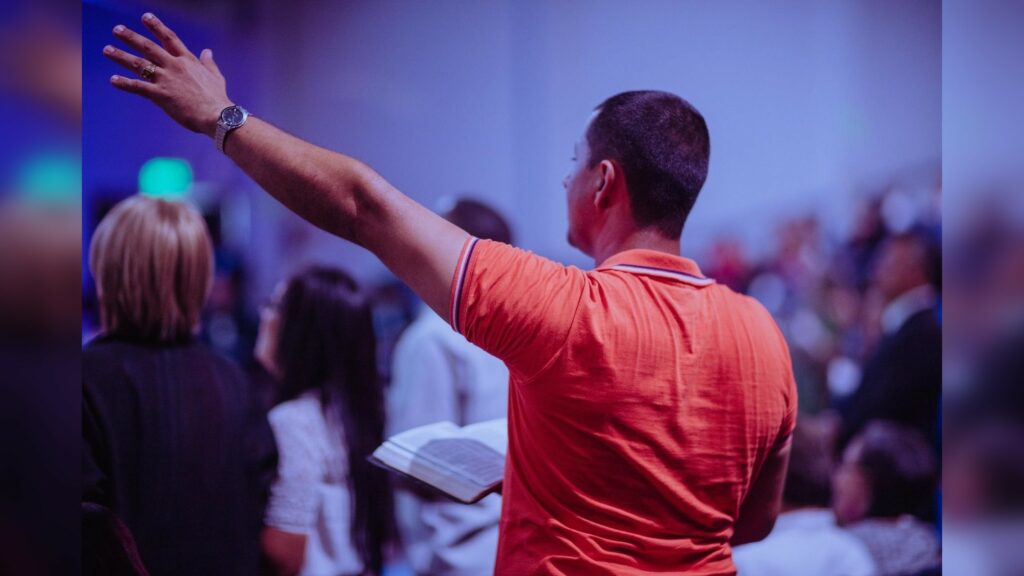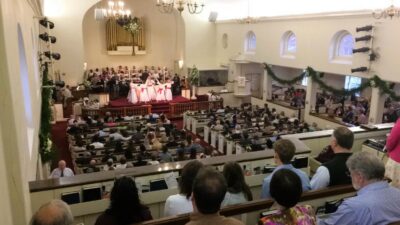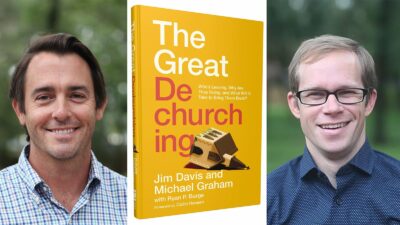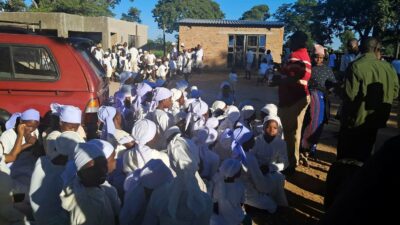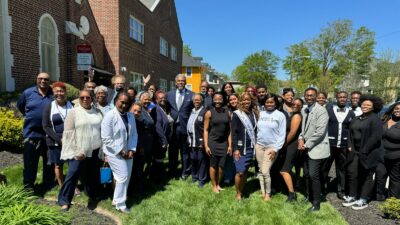Announcing the results of a new Global Flourishing Study, a consortium of scholars and pollsters led by Gallup said that they found links between religiosity and people’s satisfaction with their lives.
The study, a joint project of Harvard and Baylor universities, Gallup and the Center for Open Science, aims to uncover what influences “human flourishing,” which is defined by measures of happiness, character and virtue and social relationships, among other values.
According to the group’s research, attending a religious service regularly positively affects flourishing.
“We’re not shocked at that because there’s a lot of other research that indicates that faith is important to human flourishing, but it may come as a surprise to people that religion would be an important thing,” said Byron R. Johnson, director of Baylor University’s Institute for Studies of Religion.
Earlier studies have shown that religion could help young people struggling with mental health issues, but also that being involved in a congregation could influence the level of happiness.
Your tax-deductible gift helps our journalists report the truth and hold Christian leaders and organizations accountable. Give a gift of $30 or more to The Roys Report this month, and you will receive a copy of “Hurt and Healed by the Church” by Ryan George. To donate, click here.
For this study, Gallup interviewed 200,000 individuals in more than 20 countries, including Mexico, Japan, Nigeria, Indonesia and Israel. Participants were asked questions about the six domains the Center for Open Science has identified as the core indicators of human flourishing. Physical and mental health, purpose and financial stability were among the topics discussed.
Their responses were collected during short in-person interviews and used to create a “human flourishing index” ranging from 0 to 10, with 10 being the highest level of satisfaction.
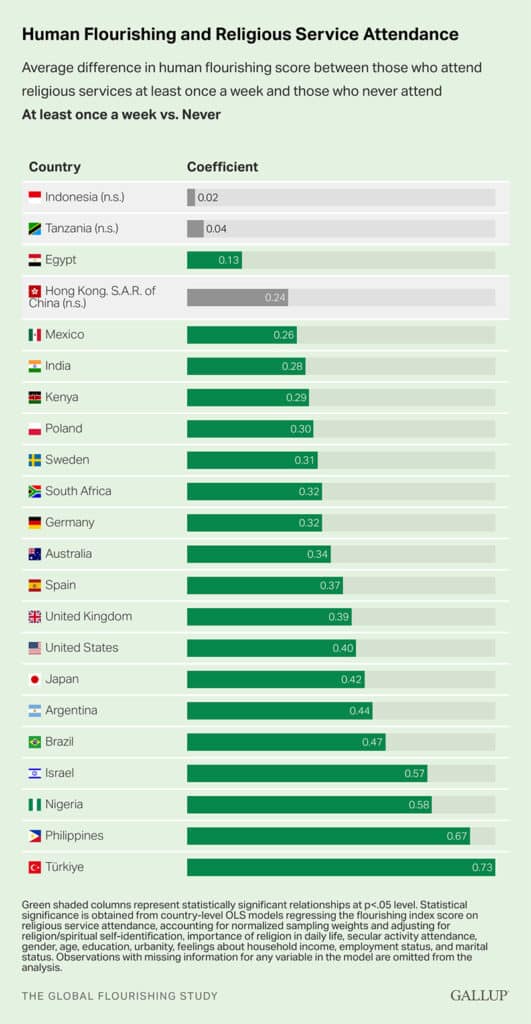
Respondents who said “religion is an important part of daily life” score 0.23 points higher on average than those who didn’t. Those who attend a religious service at least once a week scored 0.41 points higher than those who never do. Attendance one to three times a month correlated with a 0.22 point higher score, while those who go a few times a year scored 0.18 points higher on average.
The study also revealed that gaps in human flourishing scores are largest among people in Turkey, with 0.73 points of difference between Turks who attend religious services weekly and those who never do; in the Philippines (0.67 points of difference); and in Nigeria (0.58 points of difference).
In an article commenting on these results, Gallup noted that context is important to understand the data, as other factors related to financial stability, such as being employed and living comfortably, also play a role.
Now that the first results have been published, the team of 50 researchers deployed by the four institutions to work on the study is conducting separate analyses to study the level of flourishing within each religious group and compare religions together. These further analyses might give them clues on which religious groups tend to have higher flourishing scores.
“Some people will just be looking at Jewish samples, for example, and some will just be looking at samples of those that follow Islam, and some will be doing all of it,” said Johnson.
The main focus for the next four years is to keep the same sample population so researchers can track the participants’ level of flourishing and understand what influences potential changes.
Johnson said the idea of creating a longitudinal study — one that follows people over time — came after a conference on human flourishing at Harvard in November 2018.
Johnson said the study could also help make headway in understanding the global religious landscape, as the study collected data about religious groups in every country.
The next round of interviews has already started, with results likely available by mid-February 2025. In the meantime, all data collected in the first edition of the survey are available in open access for researchers.
 Fiona André is a national reporter for Religion News Service based in New York City.
Fiona André is a national reporter for Religion News Service based in New York City.




